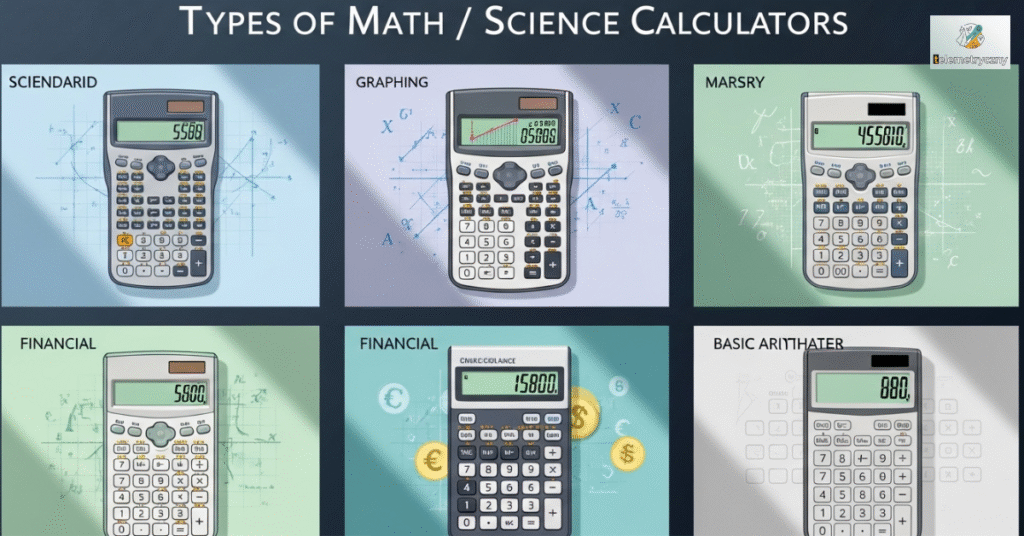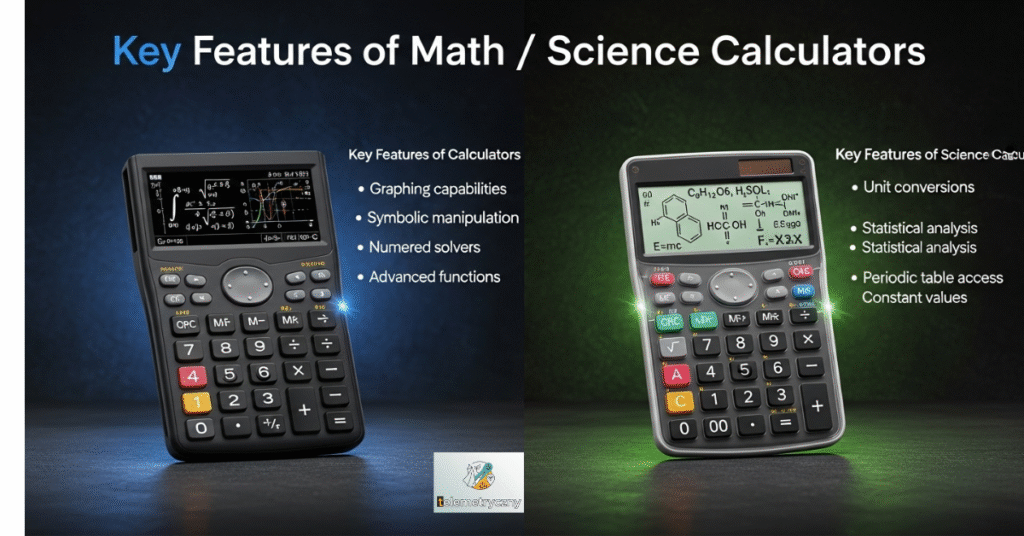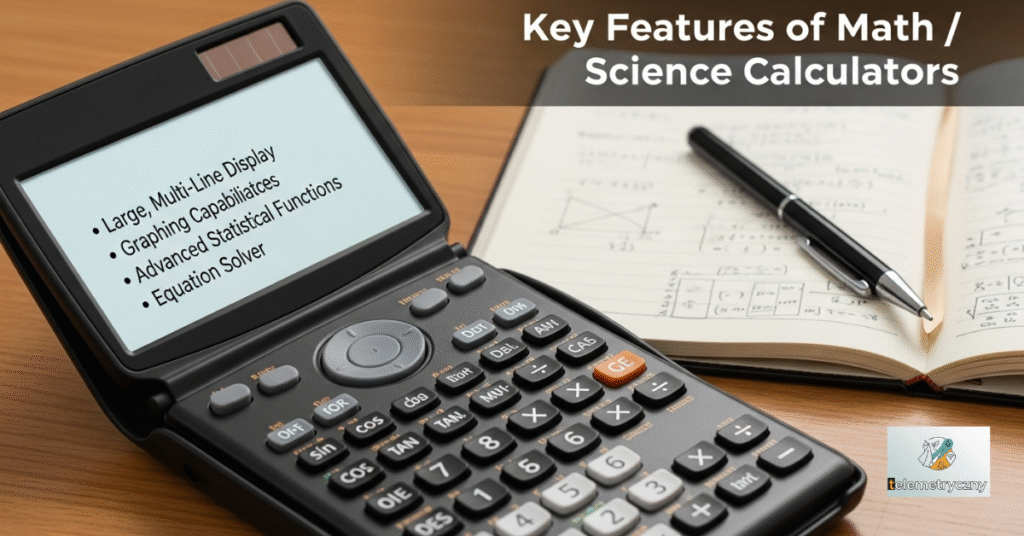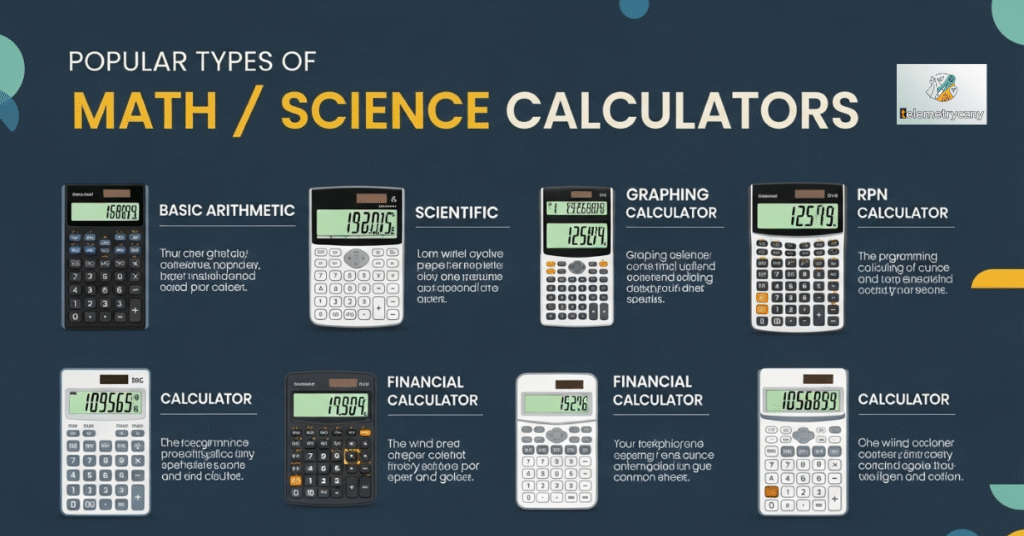Ever get stuck on a problem where your regular calculator just isn’t enough? Maybe you’re trying to figure out a tricky equation for homework double check a formula at work or just curious about how numbers actually work in real life. That’s usually when we start wishing for something smarter than the basic calculator on our phone something that can handle both Math / Science Calculators tasks without the headache.
That’s exactly what this blog is here to help with. We’ll break down different types of Math Science Calculators show what they can do and explain how they make tough problems easier. Whether you need quick answers detailed solutions or step by step guidance you’ll find the right tool and a little peace of mind here.
What Are Math / Science Calculators?

Math / Science Calculators are digital tools that go beyond simple arithmetic. Unlike a basic calculator that only adds subtracts multiplies or divides these advanced tools can solve square roots logarithms trigonometric functions fractions percentages and even probability problems.
They are web to based mobile to friendly and interactive which makes them accessible anywhere whether you’re studying at home in a classroom or on the go. A big plus is that many calculators combine multiple features in one place. For example you might find a scientific calculator fraction calculator percentage calculator or a random number generator all in the same tool.
Because they deliver instant and accurate results Math / Science Calculators are widely used by students engineers data analysts and professionals who want a reliable way to solve problems without wasting extra time.
See More: Hair Is Overrated: The Bold Truth About Style
Types of Math / Science Calculators

When it comes to solving problems not every calculator is the same. Different fields of study and work demand different tools. Here’s a breakdown of the most common Math / Science Calculators you’ll come across:
1. Basic Calculator
This is the simplest form used for quick arithmetic like addition subtraction multiplication and division. It’s perfect for everyday tasks such as budgeting grocery calculations or simple homework problems. While it may not handle advanced functions its speed and simplicity make it a reliable starting point.
2. Scientific Calculator
A scientific calculator is the most popular choice among students and professionals in math and science fields. It covers functions like square roots trigonometry sin cos tan logarithms exponents and percentages. Some advanced models even allow working with fractions and conversions between degrees and radians making them essential for physics chemistry and engineering.
3. Graphing Calculator
If you’ve ever had to plot equations or visualize data, a graphing calculator is the tool you need. These calculators can draw graphs solve equations with multiple variables and display results visually. They’re widely used in algebra calculus and statistics as well as in high to level research and data modeling.
4. Online & Web-Based Calculators
With the rise of technology, web-based calculators have become a go to option. Accessible on any device desktop tablet or smartphone they don’t require installation. Many websites now offer free online scientific calculators, fraction calculators and percentage calculators that work directly in your browser.
5. Specialized Calculators
Apart from the standard options there are calculators tailored for specific needs. Examples include:
- Fraction calculator for handling complex ratios and mixed numbers.
- Percentage calculator for discounts interest rates and data analysis.
- Random number generator for probability simulations and experiments.
- Conversion calculators help with unit changes such as length weight or temperature.
Each of these tools reduces manual effort and increases accuracy making learning and problem to solving much smoother.
Key Features of Math / Science Calculators

The reason Math / Science Calculators are so popular is not just their ability to solve equations but the range of features they offer. Whether you’re a student teacher engineer or researcher knowing these functions can save time and improve accuracy.
1. Arithmetic Operations
The fundamental operations of addition, subtraction, multiplication, and division are the foundation of all calculators. Even in advanced models these operations remain the foundation. Many calculators also provide shortcuts like memory storage M+, M–, MR, MC to simplify repeated calculations.
2. Trigonometric Functions
For science and engineering students, trigonometry is unavoidable. Sin, cos, tan, and their inverses asin acos atan are standard in almost every scientific calculator. These functions are especially important in geometry physics and navigation.
3. Logarithmic and Exponential Functions
Common logarithms (log) and natural logarithms (ln) are included in modern calculators along with exponential functions. Calculus growth/decay models and chemical equations are examples of advanced math courses that require them.
4. Square Roots, Powers & Factorials
Whether you’re trying to solve quadratic equations or calculate large number combinations Math and Science Calculators make it quick and accurate. Features like square root (√) power (^) and factorial (n!) are built to in. These calculators simplify complex problems that would otherwise take time-consuming manual steps to solve.
5. Constants & Conversions
Some calculators come with stored constants like π (pi ≈ 3.14159) and Euler’s number (e ≈ 2.71828). Others even include unit conversions for example degrees to radians or percentage to fraction making them versatile tools for different subjects.
6. Graphing & Visualization
High-end graphing calculators can plot functions analyze graphs and solve systems of equations. Visualization is a powerful way to understand math problems and spot errors instantly. Students dealing with statistics algebra or calculus often find this feature essential.
7. Online & Mobile-Friendly Interfaces
Many modern online calculators go beyond hardware limitations. They feature responsive designs that work on both desktop and mobile keyboard shortcuts and even touchscreen to friendly buttons. This accessibility makes them a preferred choice for quick on to the go calculations.
Benefits of Using Math / Science Calculators

Using a Math / Science Calculator isn’t just about convenience it’s about accuracy speed and building confidence in problem to solving. These calculators reduce human error and save time, whether you’re working on professional projects or studying for difficult exams in high school.
See More: Men’s Long Hair: 30 Stylish Hairstyles Every Guy Can Rock
1. Accuracy You Can Trust
Small errors sometimes occur when computations are done by hand particularly when dealing with complex equations fractions and decimals. You can solve issues accurately the first time by using a calculator which guarantees accuracy. For fields like engineering finance or chemistry even minor errors can lead to major consequences so accuracy matters.
2. Time-Saving for Students & Professionals
Instead of spending ten minutes solving a single equation by hand you can reach the answer in seconds. This time to saving benefit is especially valuable during exams research or workplace tasks where efficiency is key.
3. Boosts Learning & Understanding
Far from cheating calculators can actually enhance learning. They free your mind from repetitive arithmetic so you can focus on understanding concepts visualizing graphs, and analyzing results. Many teachers encourage calculator use to help students grasp higher to level math without being stuck on basic operations.
4. Multi-Subject Versatility
Math / Science Calculators are not limited to one subject. They’re useful for algebra trigonometry statistics calculus physics chemistry and even economics. A single tool can handle everything from balancing chemical equations to plotting quadratic graphs.
5. Portable & Accessible
With online and mobile to friendly calculators you don’t even need to carry a physical device. Simply open a web to based tool on your laptop tablet or smartphone and you’re ready to calculate anytime anywhere.
6. Builds Confidence in Problem Solving
When students and professionals know they have a reliable calculator they feel more confident tackling complex tasks. This confidence often translates into better performance, productivity and results in both academic and professional settings.
Popular Types of Math / Science Calculators

Not all calculators are built the same each type serves a unique purpose. Depending on whether you’re a student researcher or professional the right Math / Science Calculator can make your work much easier. Let’s take a look at the most common types of calculators you’ll encounter:
1. Basic Calculators
These are the simplest versions perfect for addition subtraction multiplication and division. They are widely used in schools for everyday arithmetic or by professionals for quick small calculations.
2. Scientific Calculators
Designed for more advanced functions, scientific calculators handle trigonometry, logarithms square roots exponents and fractions. They’re ideal for high school students college learners and anyone working in engineering science or mathematics.
3. Graphing Calculators
Graphing calculators are advanced tools that allow users to plot equations display graphs and work through algebraic functions. They are often required in advanced math classes SAT exams and STEM to related courses. For students learning calculus or statistics graphing calculators provide a clear picture of how equations behave.
4. Programmable Calculators
These advanced calculators allow you to write and save custom programs, making them popular in computer science physics and engineering fields. They’re especially helpful when dealing with repetitive or complex formulas.
5. Online & App-Based Calculators
With the rise of digital learning, many people now prefer online math and science calculators. These tools are accessible from laptops tablets and smartphones offering the same functions as physical calculators without the extra cost. They’re also frequently updated with new features making them a flexible choice.
6. Specialized Calculators
Certain calculators are designed for niche purposes for example financial calculators for accounting chemistry calculators for molecular equations and statistical calculators for data analysis. These are tailored for professionals who need accuracy in very specific domains.
Conclusion
Math / Science Calculators have become more than just simple tools they’re now essential companions for students teachers researchers and professionals alike. Whether you’re solving a quick arithmetic problem graphing complex equations or handling advanced scientific functions the right calculator can save time and reduce errors.
From traditional handheld models to powerful online calculators you have endless options at your fingertips. Choosing the best one depends on your needs but one thing is clear a reliable Math / Science Calculator is key to mastering numbers and science with confidence.
FAQs
What is the difference between a math calculator and a science calculator?
While a science calculator offers more sophisticated capabilities like trigonometry logarithms exponents and scientific notation a math calculator typically handles algebraic and arithmetic operations.
Do I need a graphing calculator for high school?
Not always but graphing calculators are often recommended for advanced math classes such as algebra calculus and statistics. Many schools and standardized tests require them.
Can online calculators replace physical calculators?
Online math and science calculators are growing in popularity since they’re free mobile to friendly and packed with advanced features. However physical calculators are still preferred in exams where internet access is not allowed.
Which calculator is best for engineering students?
Because they can handle complex functions like logarithms trigonometric equations and matrices scientific or programmable calculators are typically beneficial to engineering students.
Are Math / Science Calculators allowed in exams?
The rules of the exam will determine this. Basic and scientific calculators are usually accepted in schools and universities but programmable or graphing models may have certain restrictions. Check the official exam guidelines at all times.
Hi,
I’m Tehreem, a content writer specializing in SEO-optimized articles that rank and engage. Whether it’s AI-assisted or fully human-written content, I deliver clear, creative, and results-driven writing.


2 thoughts on “Smart Math / Science Calculators Solve Smarter Learn Faster”